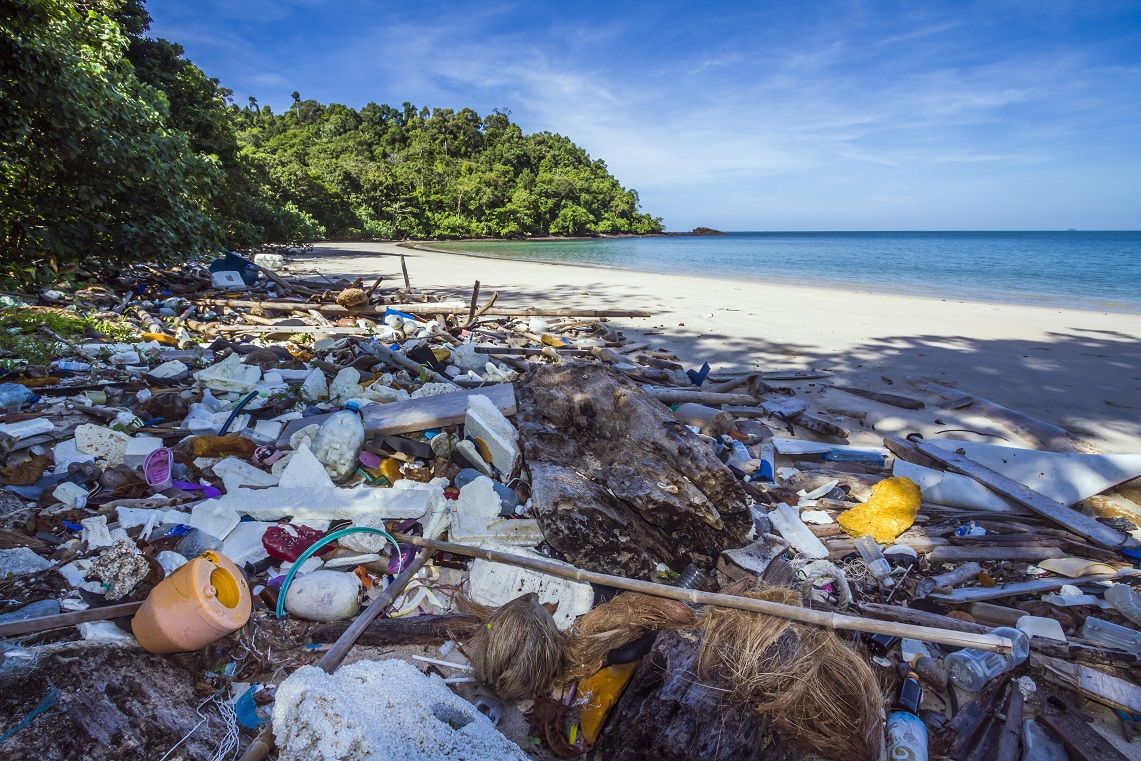Some of the world’s largest chemical and plastics manufacturers will gather in Berlin next month to discuss the future of their industry.
The 2019 Polyethylene-Polypropylene Chain Global Technology & Business Forum will see major corporations convene to draw up plans to navigate the increasingly strict environmental regulations that they are facing. Their challenges are not purely from regulators. Investors have pushed plastic pollution high up the agenda in recent years, with fund managers increasingly being asked to pile on the pressure on chemical companies to outline their transition plans away from traditional manufacturing processes.
Growing concerns
Last year, the UN-backed Principles for Responsible Investment assembled its first ever dedicated investor working group on plastics, with 29 global investor members, managing a hefty $5.9trn in assets. Meanwhile, European countries are set to ban single use plastics including cutlery, cotton buds, cups, straws and coffee stirrers from 2021. Time looks set to be running out for plastics manufacturers that don’t have a plan.
On Tuesday (28 May), IHS Markit published a research report surveying how companies involved in plastics manufacturing are changing tack in reaction to tighter regulatory restrictions in Europe and growing investor pressure worldwide.
In the report entitled Plastics Sustainability – A Sea Change, the company said that “plastics sustainability is one of the biggest potential disruptors” facing chemical companies in terms of regulatory change. It stressed that future regulation could see an increased number of bans, while consumers and retailers may opt for different product choices if companies do not respond to their concerns about environmental harm.
Manufacturers know they need to make dramatic changes. In 2017, plastic demand stood at 185 million metric tonnes, and it is currently estimated to exceed 300 million metric tonnes by 2030. However, the IHS Markit research suggests that increasingly aggressive regulation could see the current growth in plastics demand slump substantially.
Further afield
It’s not just chemical companies that are in the cross-hairs of investors, though. Packaging manufacturers and consumer goods companies are also facing touch questions from fund groups. Investors in companies that could be impacted by shifting regulations and attitudes, are urging them to act now, amid concerns that these businesses may not be viable in the long-term.
Last week (24 May), Hermes Investment Management, warned companies to invest more heavily in research and development to tackle the 8 tonnes of plastic that finds its way into the world’s seas every year.
“To tackle the issue of packaging waste, appropriate investments in research & development and product development are needed,” says Will Pomroy, director of engagement at Hermes Investment Management. “Large consumer goods companies need to make meaningful commitments to change their procurement decisions too.”
Pomroy explains that the Hermes SDG Engagement Equity fund has been engaging with companies on the issues of plastics amid growing concerns about the damage to marine ecosystems.
“We have investments in Huhtamaki and AptarGroup – two companies that provide packaging for many of the world’s largest consumer goods companies,” he explains.
“Huhtamaki is a leading manufacturer of paper cups and flexible packaging, while AptarGroup makes a number of dispensing systems – such as bottle caps and spray pumps – for consumer products in the beauty, personal care and consumer healthcare markets.
“To date, we have had lengthy discussions with both companies around the environmental challenges posed by the prevalent use of single-use plastics, the lack of recycling infrastructure in many countries, and the responsibility on the packaging industry to deliver appropriate solutions.”
Financial firms’ collaboration
Hermes certainly isn’t alone in zoning in on plastics pollution as a priority for investors. At the start of 2019, some 350 global companies signed The Plastic Pact – a commitment to eliminate plastic pollution. Among the signatories were ABN Amro, Fifth Season Ventures, Sarasin & Partners, Trillium Asset Management and Ultra Capital.
At the end of May, ABN Amro launched its latest social media campaign to raise awareness of plastic pollution. A spokesman said the educational video was designed to help people understand the importance of doing more.
“At one time, we all thought plastic was a panacea; now it’s an environmental problem. The plastic soup in the ocean is growing. All of us – at home and at the office – are responsible.”








